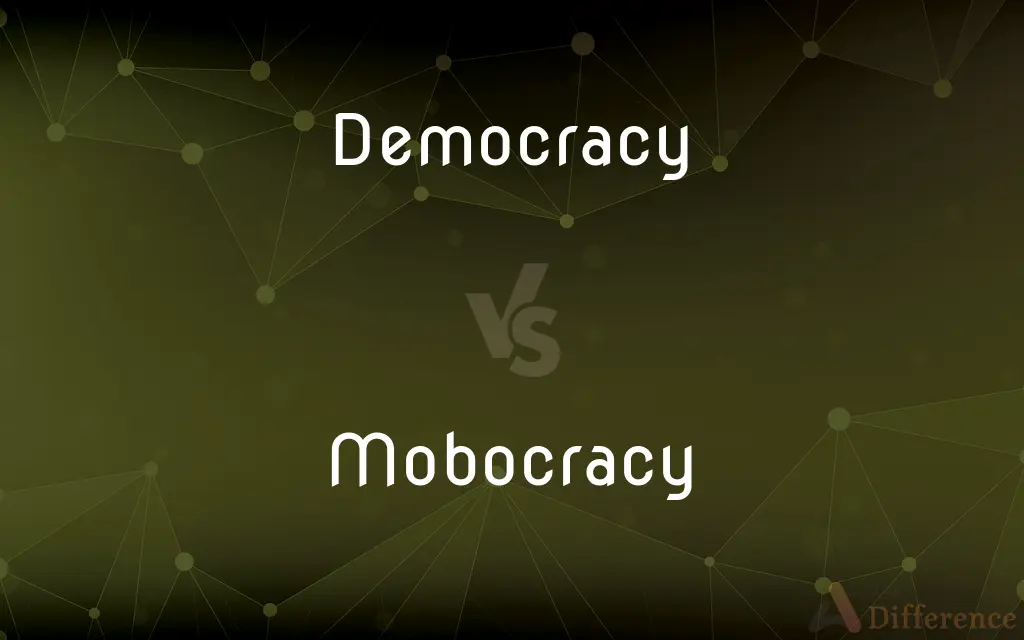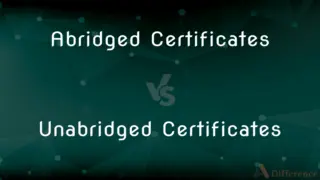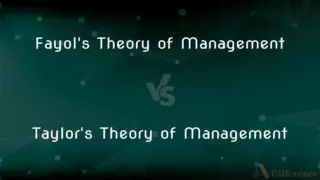Democracy vs. Mobocracy — What's the Difference?
By Tayyaba Rehman & Maham Liaqat — Published on June 18, 2024
Democracy is system of government where power is vested in the people, who rule either directly or through elected representatives. Mobocracy is rule by mass crowd, where decisions are made based on the majority's whim without structured legal processes.

Difference Between Democracy and Mobocracy
Table of Contents
ADVERTISEMENT
Key Differences
Democracy is built on principles of political equality, rule of law, and often includes checks and balances to ensure the rights and freedoms of all citizens. It strives for inclusivity, deliberation, and consensus-building among a diverse populace. On the other hand, mobocracy represents a breakdown of these democratic processes, where governance is swayed by the passion, prejudice, or impulse of the majority.
In a democracy, the rule of law ensures that decisions are made according to established laws and policies, not by the immediate whims of the populace. This framework supports stability, predictability, and fairness within society. Conversely, mobocracy operates without these constraints, leading to decisions that can be erratic, driven by the mood of the moment, and potentially unjust, especially to individuals or groups not aligned with the majority's views.
Democratic systems encourage dialogue, debate, and compromise, recognizing the complexity of governance and the importance of various perspectives in shaping policies. This deliberative process aims to reach decisions that are reasoned and beneficial to the collective welfare. Mobocracy, by contrast, often bypasses rational deliberation in favor of emotional or reactionary responses, which can neglect nuanced discussion and critical analysis of issues at hand.
Democracy invests in the education and political participation of its citizens, understanding that an informed electorate is fundamental to its success. It values civil liberties, political freedoms, and the protection of rights, ensuring that governance reflects the will of the people in a balanced and just manner. Mobocracy, however, tends to undermine these principles, where the loudest or most forceful voices dominate, potentially marginalizing or silencing dissent and critical thought.
Despite their differences, both concepts highlight the importance of managing public opinion and participation in governance. While democracy seeks to channel public will through structured, equitable means, mobocracy warns of the dangers when mass movements bypass these mechanisms, underscoring the need for democratic institutions that are resilient, inclusive, and capable of moderating the vast array of public sentiments.
ADVERTISEMENT
Comparison Chart
Definition
Government by the people, direct or representative
Rule by mob or crowd, without legal restraints
Decision-making
Based on laws, policies, and structured processes
Driven by immediate majority whims
Stability
Promotes stability through laws and institutions
Often leads to chaos and instability
Minority Rights
Protects minority rights and encourages inclusivity
Can disregard minority rights and perspectives
Deliberation
Encourages reasoned debate and consensus
May bypass rational discussion for emotion-driven actions
Rule of Law
Adheres to established laws and principles
Lacks adherence to structured legal processes
Public Participation
Informed participation through voting and civic engagement
Participation swayed by passion or impulse
Governance
Structured governance with checks and balances
Governance without constraints or safeguards
Objective
Collective welfare and justice
Immediate gratification of the majority
Compare with Definitions
Democracy
A system where citizens participate in decision-making.
In a democracy, people vote to elect their leaders.
Mobocracy
Rule or dominance by the majority without legal restraint.
Mobocracy can lead to spontaneous decisions without due process.
Democracy
Protects individual rights and freedoms.
Democracies enact laws that safeguard minority rights.
Mobocracy
Can undermine established governance structures.
Mobocracy can threaten the principles of democratic decision-making.
Democracy
Promotes freedom of speech and assembly.
Democracy allows for peaceful protests and open dialogue.
Mobocracy
Lacks protection for those outside the majority.
Minority groups may suffer under mobocracy due to majority tyranny.
Democracy
Seeks consensus and compromise.
Legislators in a democracy negotiate to create balanced policies.
Mobocracy
Often results from public unrest or dissatisfaction.
A mobocracy might emerge during a tumultuous public protest.
Democracy
Operates through structured institutions.
Democratic countries have constitutions that outline governance rules.
Mobocracy
Governed by emotion or immediate reaction.
Decisions in a mobocracy are often made in the heat of the moment.
Democracy
Government by the people, exercised either directly or through elected representatives.
Mobocracy
Political control by a mob.
Democracy
A political or social unit that has such a government.
Mobocracy
The mass of common people as the source of political control.
Democracy
The common people, considered as the primary source of political power.
Mobocracy
Rule or control by the mob (or by the mass of ordinary people); a mob as a politically powerful force.
Democracy
A government under the direct or representative rule of the people of its jurisdiction.
Mobocracy
A condition in which the lower classes of a nation control public affairs without respect to law, precedents, or vested rights.
It is good name that Dr. Stevens has given to our present situation (for one can not call it a government), a mobocracy.
Democracy
Government by the people; a form of government in which the supreme power is retained and directly exercised by the people.
Democracy
Government by popular representation; a form of government in which the supreme power is retained by the people, but is indirectly exercised through a system of representation and delegated authority periodically renewed; a constitutional representative government; a republic.
Democracy
The political orientation of those who favor government by the people or by their elected representatives
Democracy
A political system in which the supreme power lies in a body of citizens who can elect people to represent them
Common Curiosities
What is the key difference between democracy and mobocracy?
The key difference lies in their approach to decision-making; democracy is structured and law-bound, while mobocracy is impulsive and often lawless.
How can citizens prevent mobocracy?
By engaging in informed, respectful public discourse, supporting the rule of law, and strengthening democratic institutions and processes.
How does democracy protect against the rise of mobocracy?
Through strong institutions, rule of law, checks and balances, and promoting informed civic participation.
Why is mobocracy considered dangerous?
It leads to instability, disregards minority rights, and can result in unjust decisions made under the influence of passion rather than reason.
Are there examples of mobocracy in history?
Instances where public unrest bypassed legal channels for immediate action can be seen as examples, though specific cases vary in context and outcome.
How do democracies ensure fairness in decision-making?
By incorporating diverse viewpoints, protecting minority opinions, and adhering to established laws and ethical standards.
Can a democracy turn into a mobocracy?
Yes, when democratic institutions fail to manage public dissent or when the majority's voice suppresses minority rights and legal processes.
Can mobocracy be controlled or regulated?
Controlling mobocracy involves reinforcing democratic principles, education on civic responsibility, and ensuring the rule of law prevails.
Does mobocracy have any positive aspects?
While it shows the power of public mobilization, its lack of structure and disregard for legal processes often result in negative outcomes.
What role do institutions play in a democracy versus a mobocracy?
In democracy, institutions are central to governance, upholding laws and principles; in mobocracy, institutions may be weakened or bypassed.
Share Your Discovery

Previous Comparison
Abridged Certificates vs. Unabridged CertificatesAuthor Spotlight
Written by
Tayyaba RehmanTayyaba Rehman is a distinguished writer, currently serving as a primary contributor to askdifference.com. As a researcher in semantics and etymology, Tayyaba's passion for the complexity of languages and their distinctions has found a perfect home on the platform. Tayyaba delves into the intricacies of language, distinguishing between commonly confused words and phrases, thereby providing clarity for readers worldwide.
Co-written by
Maham Liaqat













































